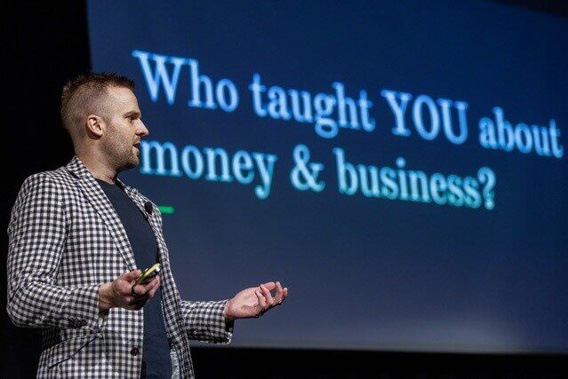
Luke Kemeys has always loved numbers, finance and business and he is now working towards helping others feel the same.
The chartered accountant originally from Dannevirke said money could be seen as an embarrassing topic and he wanted to break down that stigma and create positive conversations around finance and saving.
“It’s the lifeblood, money is involved in everything we do, and it’s not bad, evil or good - we decide what it is.”
Now based in Auckland he is helping Kiwis improve financial literacy with his “Keep the Change” movement through his podcast, weekly email to subscribers and social media and YouTube content.
 Luke Kemeys said the way New Zealanders thought about money needed to change.
Luke Kemeys said the way New Zealanders thought about money needed to change.
Kemeys offered his best tips for saving money and said it could be broken down into three steps and a change in perspective.
“It’s not just this ‘once a year set a goal of how much I want to make or save’.
“Money is a tool, nothing more, nothing less, and you decide what you do with that tool once you have it.”
The first step, Kemeys suggested was to assess your financial situation, to gain clarity of your spending habits to know what needs to change.
“What do you have coming in and what do you have going out that helps you get clarity and you map that out over the next four weeks or your pay cycle to see what it is you have got.”
His second step in achieving a savings goal was to ask yourself what the goal is, how to get there and set a time frame to achieve this.
“Say it’s saving $10,000 and you have got $200 left over every pay run. How long is that going to take you to get to and why is that important?”
He said the key was to have a clear purpose and challenge yourself.
“How can I increase this income, how can I do it faster, how can I make it so important to me that I don’t want it to take 52 weeks for instance I want it to be half of that?”
Next, he said you needed to find a way of increasing income and adding value.
 Luke Kemeys wants to help others reach their financial goals.
Luke Kemeys wants to help others reach their financial goals.
“Most of us are more valuable than we realise, but we go into a financial system where we have learnt that if we swap an hour of our time we get an exact dollar amount.
“People who make more money figure out how to provide more value and that’s how you increase your hourly rate.”
He said this was seen every day when buying something, where people were willing to pay for a service or an item, but less when it came to value within ourselves and our value in the workplace.
“We see it as a consumer - we pay different prices for water depending on how thirsty we are, what area we are in and what access there is to water.”
“Those three things, that’s the framework then you realise that the world is your oyster.
“Some of the most popular content is when people have the ability to compare themselves, which I think as humans we like.”
Take your Radio, Podcasts and Music with you









